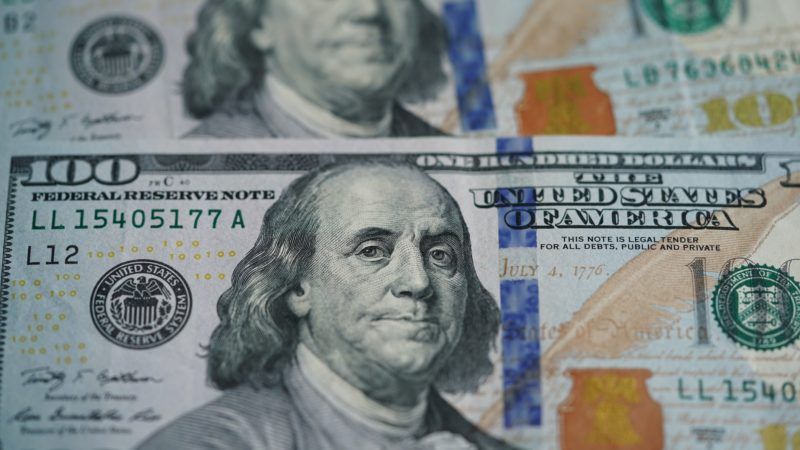$1 Trillion Coronavirus Stimulus Unveiled: Corporate Bailouts and Loans, Checks for All
The package seeks to curb the economic chaos caused by COVID-19.

The Treasury Department on Wednesday released an outline for a third coronavirus stimulus bill, which includes bailouts and loans for the airline industry, small businesses, and other "critical sectors" of the U.S. economy; a temporary suspension on the limitations placed on the Exchange Stabilization Fund; and direct payments made to Americans.
The $1 trillion package comes as the Trump administration attempts to curb the economic chaos caused by the coronavirus, with many state and local governments imposing widespread restrictions that make business operations untenable. North Carolina, Washington, Pennsylvania, Maryland, New York, Ohio, Illinois, Massachusetts, California, Michigan, Washington, D.C., and others have issued temporary closures or limitations on bar and restaurant service as the nation is encouraged to practice social distancing in an attempt to stop the spread of COVID-19.
Perhaps the most controversial measure of the GOP-led proposal will be the $50 billion bailout of the airline industry. In order to qualify for loans, carriers would need to promise to limit executive compensation until the money is repaid. They also must vow to continue service—a strange stipulation in the face of a global pandemic that numerous countries are scrambling to contain.
Many Republicans have been skeptical of bailouts in the past. The Emergency Economic Stabilization Act of 2008, signed by former President George W. Bush, bailed out the financial institutions that directly contributed to the Great Recession. From those ashes, the Tea Party was born, as several conservative lawmakers sought to re-establish the Republican Party as the banner carrier of fiscal responsibility and free market principles.
Some say that coronavirus is a different beast, requiring drastic measures to counterbalance government mandates that are directly harming businesses nationwide.
"This is not like the financial meltdown, where you had banks that made bad decisions and asked the government to bail them out," said Sen. Marco Rubio (R–Fla.), according to Politico. "We are basically telling people not to go out, not to spend money at these stores, and in some jurisdictions, not go to work…It's an unprecedented challenge."
That may make sense for small businesses, many of which will face insurmountable challenges in the coming months. The plan carves out a $300 billion loan program to address that. But how that logic applies to airlines remains uncertain, particularly as the proposal, in its current form, mandates that they stay open—the exact opposite order given to many small businesses across the United States.
While no airline carrier can be blamed for the inability to foresee an unprecedented global pandemic, the colossal companies have come under fire in recent days for their business practices. Rep. Alexandria Ocasio-Cortez (D–N.Y.) and other progressives have been particularly focused on the issue of stock buybacks and have been pushing for demands from unions to be included in the deal.
Taxpayer-funded bailouts mostly serve to "protect executives, investors and lenders against the effects of poor risk management," writes Joe Crahill at Crain's Chicago Business. "And that means we'll get more of it—along with less legroom."
The plan also specifies that checks will be sent to Americans in the style of a Universal Basic Income (UBI). The measure, popularized by Andrew Yang during his run in the Democratic presidential primaries, reached bipartisan consensus this week when Sen. Mitt Romney (R–Utah) declared his support for cutting everyone a check. As it stands, the stimulus allots $500 billion to be distributed in two payments, with the amount tiered based on income and family size, disbursed on April 8 and May 16.
In addition, the stimulus provides $150 billion for "other severely distressed sectors of the U.S. economy." While the current plan does not specify exactly what those are, this likely refers to the hotel and casino industries—something President Donald Trump floated saving earlier this week, which is likely to generate some pushback.


Show Comments (109)